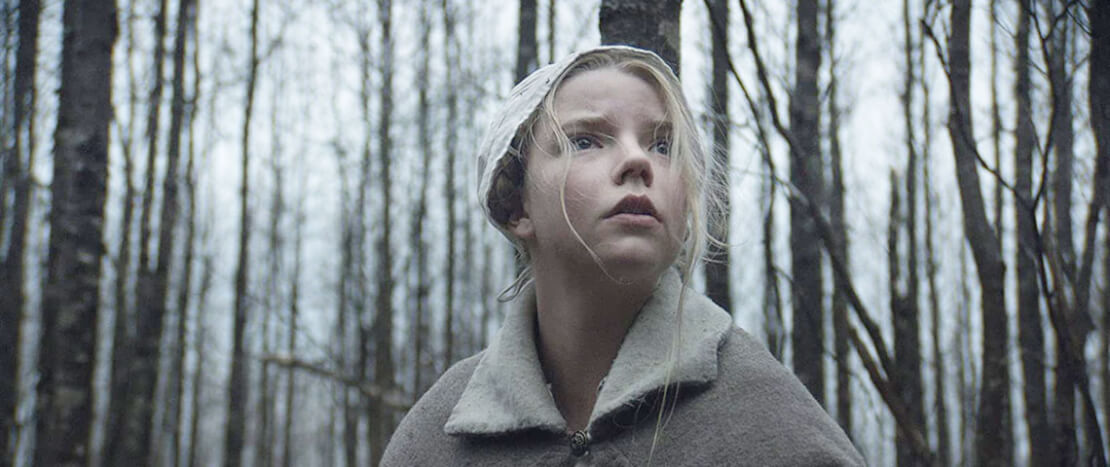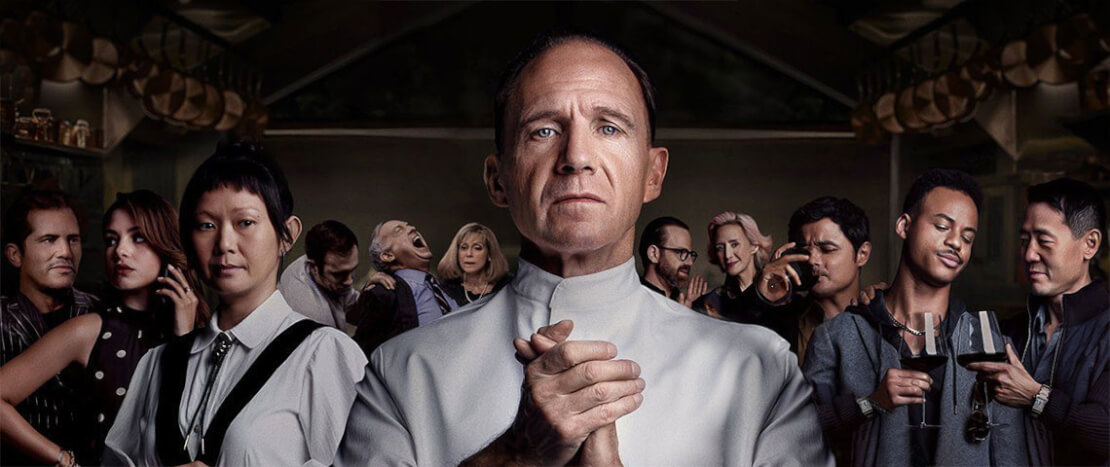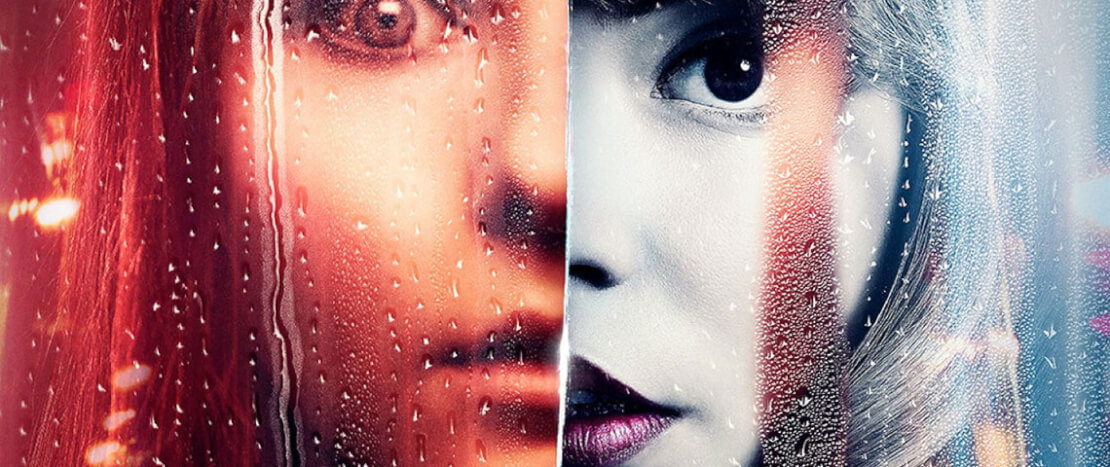The Witch
Banished from their New England community, Thomasin (Anya Taylor-Joy) and her religiously devout family build a farm for themselves in the wilderness. However, with crops failing and sudden disappearance of youngest child Samuel, all of them become increasingly consumed by superstition and paranoia. What, if anything, is watching them from the ominous woods beyond?
…as each of its characters arrestingly unravel, you will come to remember The Witch by more than just its name with two VV’s.
From the opening wailing, screeches of Mark Korven’s score, the trees whose lime colour stains every frame, are a force to be reckoned with. In a clearing surrounded by woodland, you can sense this is infertile land and yet the way film that frames it is quite the opposite.
Shot in a natural/candlelight atmosphere you will be able to feel the cold seeping into the jaded optimism of director Robert Eggers’s settlers. Sporting convincing English accents carefully constructed in Chaucerian couplets, this is a psychological horror movie which is deliciously set to brim over. Spiritually linked, maybe because of Ralph Ineson’s Leeds accent, Robert Eggers’s latest sits between Ben Wheatley’s A Field In England and Arthur Miller’s still-resonant The Crucible. With the ever-excellent Kate Dickie leading the communal descent into acrimony and suspicion, it is actually the sniping, childlike assertions of her twins, Marcy and Lucas, who pile the heaviest of suspicions upon elder sister Thomasin (as played by Anya Taylor-Joy).
With the film now increasingly shot from her point of view, it has to be said that Taylor-Joy plays the put-upon daughter with a well-placed, rising sense of injustice. Parrying the pious accusations around her, like Florence Pugh in Ari Astor’s Midsommar, the film script slowly hints at a realisation that is determined to be felt.
What graphic horrors there are in the film, are bestial and baroque in their composition. In keeping with a film where nearly every frame is a painting, the twisted landscape ensnares all of those who would make it home as if blithe to its twisted and bent branches, that somehow suggest a demonic storm had already passed through this way.
So, just kissing over the 93-minute mark, Robert Eggers’s debut is as transfixing an introduction as you could ever ask for. Whereas you could assert that The Witch clearly points to the similarly isolated madness that The Lighthouse explores, this start like his latest offering, stand apart from The Conjuring‘s and torture porn offerings of Eli Roth and others.
So, make your way into the woods today. There’s a damp, sodden tapestry waiting to pull you in, and as each of its characters arrestingly unravel, you will come to remember The Witch by more than just its name with two VV’s.













